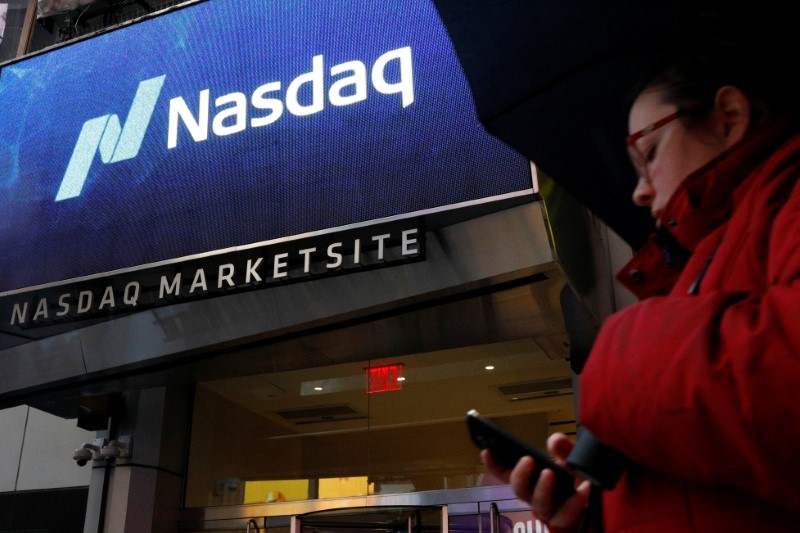Wall Street Opens Mostly Higher as Bond Yields Fall; Nasdaq up 0.8% By Investing.com

By Geoffrey Smith
Investing.com — U.S. stock markets opened mostly higher on Monday, with the tech-heavy Nasdaq Composite leading the way as last week’s fears of inflation receded, bringing down long-term bond yields moderately.
By 9:35 AM ET (1335 GMT), the Nasdaq Composite was up 98 points, or 0.8%, while the S&P 500 was up 0.1%. However, renewed jitters about the pandemic weighed on cyclical stocks and reopening plays in general, leaving the Dow Jones Industrial Average down 91 points, or 0.3%, at 32,536 points.
Rising numbers of Covid-19 infections from Europe to India and South America have cast doubt over whether the world economy will be able to recover at quite the speed currently expected. The world’s two biggest economies, the U.S. and China, both appear to be firmly en route to recovery – the U.S. notched 1.5 million air travelers this weekend for the first time in over a year – but they account for less than half of world output.
Early movers on Monday included Tesla (NASDAQ:TSLA) stock. which rose 4.6% after fund manager Cathie Wood, who has placed one of the biggest institutional bets on the electric vehicles, said the stock should hit $3,000 by 2025, based on her expectations for its autonomous driving software and, to a lesser extent, the rollout of its insurance operations.
Railroad operator Kansas City Southern (NYSE:KSU) also rose 14.3% after it agreed to be bought for $25 billion by Canadian Pacific Railway (NYSE:CP), in a deal that will create the first integrated rail operator spanning all three North American markets. The deal had a knock-on effect on larger rival CSX (NASDAQ:CSX), whose stock rose 4.3%.
AstraZeneca (NASDAQ:AZN) ADRs rose 2.4% after the Anglo-Swedish company published the results of a large, late stage trial of its Covid-19 vaccine in the U.S. and the Americas. The company said its drug was 79% effective in stopping symptomatic Covid-19 and 100% effective in preventing death and hospitalization. The test also failed to produce any evidence to support fears that the vaccine caused blood clotting disorders, which had been cited by various European politicians as they briefly suspended distribution of the drug earlier this month.
Elsewhere, Ford Motor (NYSE:F) stock fell 1.4% and the ADRs of Toyota Motor (NYSE:TM) and Nissan (OTC:NSANY) fell 2.8% and 2.7% respectively after disappointing news over the global chip shortage for cars at the weekend. The two Japanese OEMs are the biggest customers of Renesas Technologies, whose CEO said at the weekend that the fire at one of its chipmaking plants in Japan could have lasting impacts on chip availability this year. Ford, meanwhile, had said it will idle more of its U.S. production facilities, including its truck factory in Louisville, Ky., due to a shortage of components.

